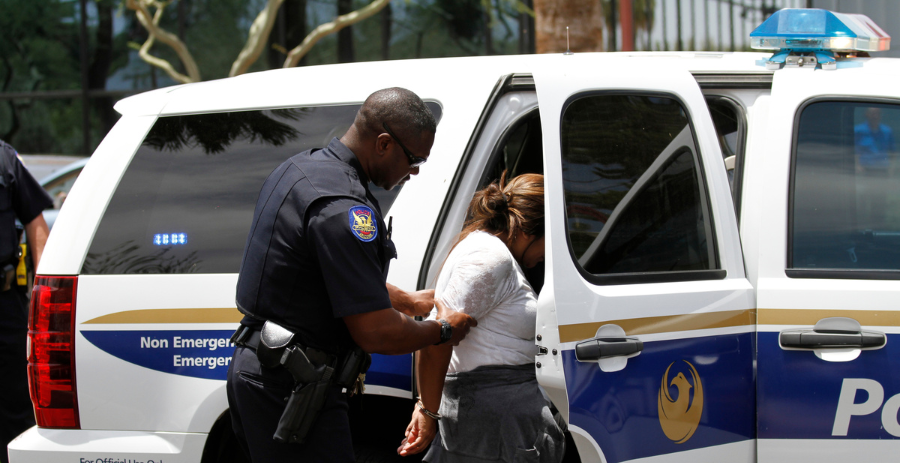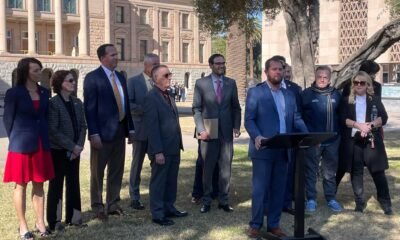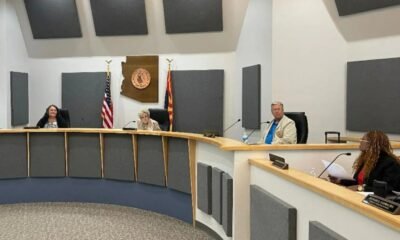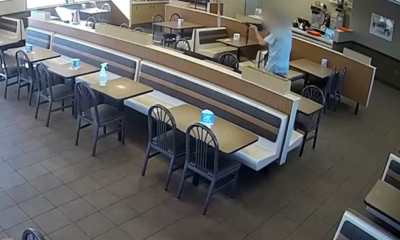arizona
Court Declares Online Mug Shot Postings Unlawful

The 9th Circuit Court of Appeals ruled on September 5, declaring that posting mug shots of arrested individuals on government websites constitutes illegal pretrial punishment. This unanimous decision allows Brian Houston to sue Maricopa County for the sheriff’s department’s practice of placing images online of anyone processed through its jail system.
Judge Marsha Berzon, in her opinion for the three-judge panel, dismissed the sheriff’s department’s claims that such postings serve a legitimate public interest. The court’s ruling extends beyond Houston’s individual case, enabling others similarly affected to pursue their claims as well.
No immediate statement has been issued by the sheriff’s department regarding the ruling. Houston’s arrest in January 2022 by Phoenix police, where he faced assault charges, initiated this legal challenge. As part of the booking process, his mug shot, alongside his full details and crime type, was posted on the county’s publicly accessible website.
In addition to his mug shot, the website also disclosed personal information, including his sex, height, weight, hair, and eye color, along with specific charges. This posting remained online for approximately three days, even though the charges against Houston were later dropped, and he was never prosecuted.
Houston argued that third-party sites, especially mugshots.com, further disseminated this information, affecting his privacy and causing significant emotional distress. He reported that nearly 909,000 mug shots of Arizonans, many from Maricopa County, are hosted on the site.
Berzon emphasized that government actions causing harm before individuals have been convicted may infringe on their due process rights, especially if those actions are deemed punitive. The panel noted that the county only claimed a transparency purpose for its actions, which the court found unconvincing.
The judge remarked that the term “transparency” does not justify government punishment. Furthermore, she questioned how posting such detailed personal information online enhances public safety. “How does that promote public safety in Maricopa County?” Berzon challenged.
The court criticized the county for posting highly personal information without adequately demonstrating how it benefits transparency or public understanding of government operations. If educating residents were a real goal, the information would not be taken down after just three days.
Berzon pointed out the absence of critical details in Houston’s arrest record, including the names of arresting officers and whether charges were pursued, emphasizing the selective nature of the information shared online.
The ruling has significant implications for the interplay between law enforcement practices and individual rights, particularly regarding the treatment of arrested but unconvicted individuals. As the case unfolds, it may prompt a reevaluation of policies surrounding the public posting of arrest information.


















